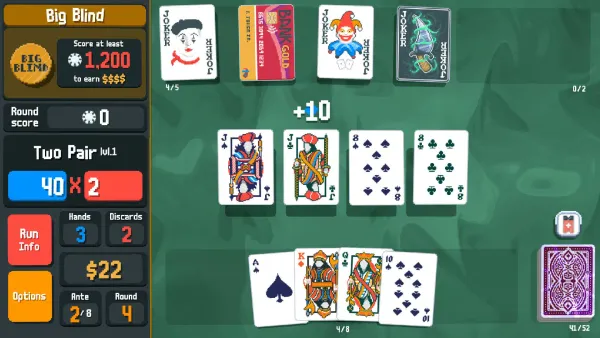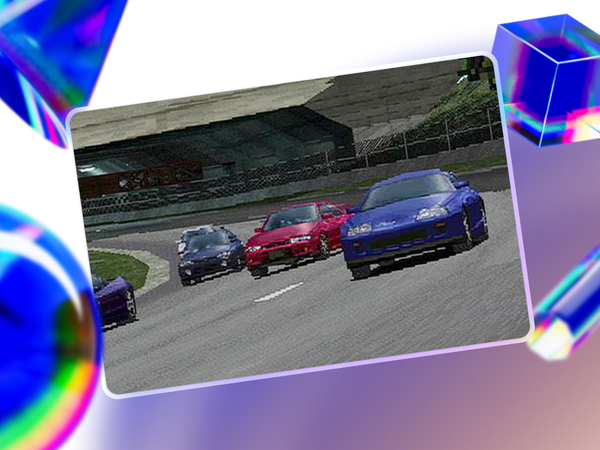I design apps for a living.
I spend all day thinking about user flow, feedback loops, and how to make digital stuff feel satisfying. Which is maybe why Balatro has completely wrecked my evenings lately.
I only found it last week.
A friend messaged me: “Poker deckbuilder. Roguelike. Unhinged.” I thought, meh, I don’t even like poker. Then I played a run. And another. And now I’m here writing this instead of doing laundry.
Initially I didn't have a clue what was happening. But then the pieces, or cards, started to fall into place, one by one.
"Holy shit," I responded. "This is addictive."
No response. I can only assume my friend is using their limited capacity to find that elusive joker.
You’re Playing Before You Know It
What makes Balatro different is how quickly it grabs you. The first hand starts with no fuss. No cutscenes. No tutorial box begging you to read a wall of text. It just gives you five cards and a score to hit.
There’s a deep elegance in how the game introduces its systems. You fail a bit, then start to spot patterns. Then a Joker drops that triples your Flushes, and suddenly you’re breaking the score cap with a single hand.
It’s wild.

From a UX perspective, I’m obsessed with how the game feeds you information at the exact right pace. There’s a lot going on—different currencies, card types, modifiers, curses—but you rarely feel overwhelmed.
At first, it’s like strolling up to a flashy slot machine in Vegas. Lots of lights, plenty of noise. You’re just poking around. Then a few rounds in, time disappears. Three hours gone.
You're an expert now. Or so you think.
Balatro hides its complexity behind this clean, arcade-like rhythm. Press a button, draw a hand, play your cards. The feedback loop is so tight it feels magnetic.
But the real reason I can’t put it down? Choice. Every single upgrade forces a tiny identity crisis. Should I lean into Full Houses, or pivot to Four of a Kind? Should I spend coins rerolling for better Jokers, or just barely scrape through this round?
You’re not building a deck—you’re building a plan, one weird card at a time.
Even when I lose, I learn something. That sounds cheesy, but it’s true. Every failed run unlocks new decks or strange cards I’ve never seen before. Some of them are clearly traps.
Others feel like bugs that made it into the final game—but in a good way. The discovery never stops.
Balatro gives you just enough structure to feel like a genius when things go well, and just enough chaos to keep you humble. I’ve played strategy games that feel like work. This feels like play. It’s loud, it’s quick, it’s messy—and it never stops being fun.
I’m still not great at it. But I don’t care. Because I’m already thinking about my next run. And if I nail that cursed Flush combo I was chasing yesterday, I’ll finally be able to sleep.
(That’s a lie. I’ll probably start another run.)












